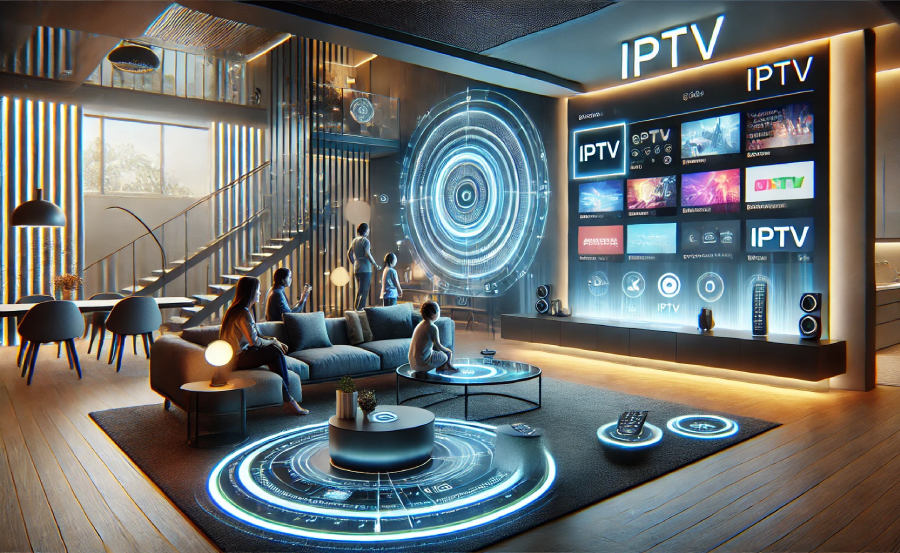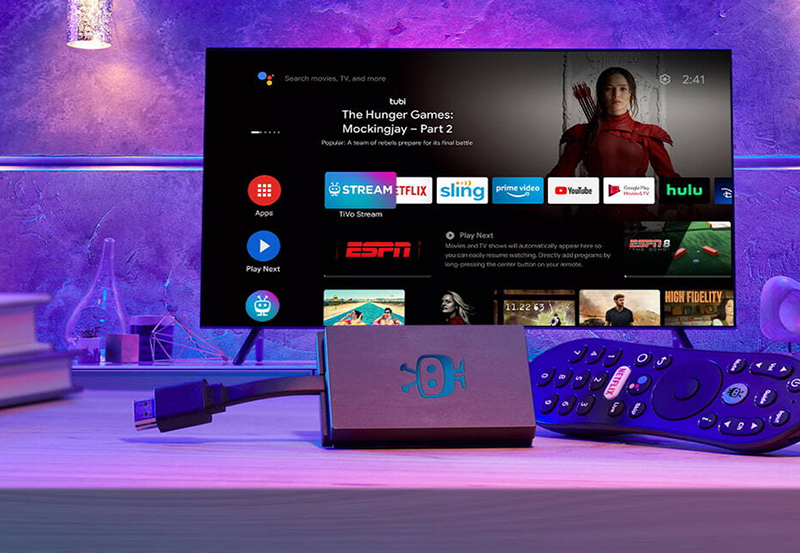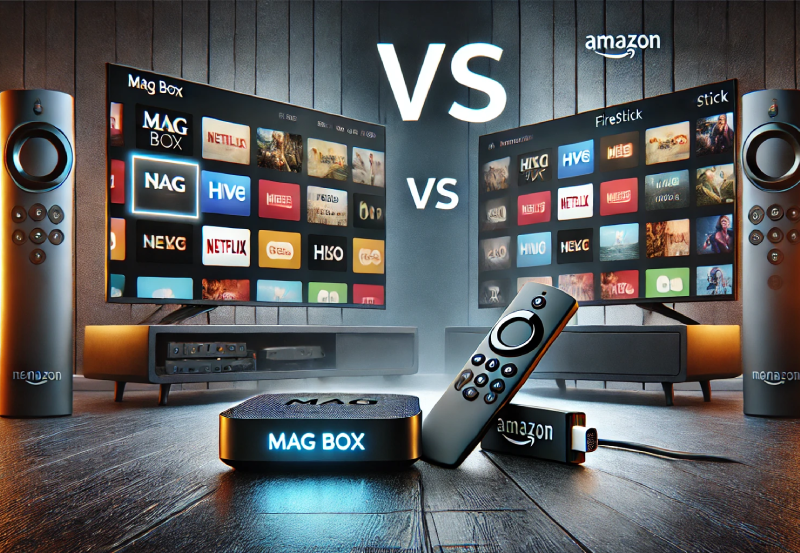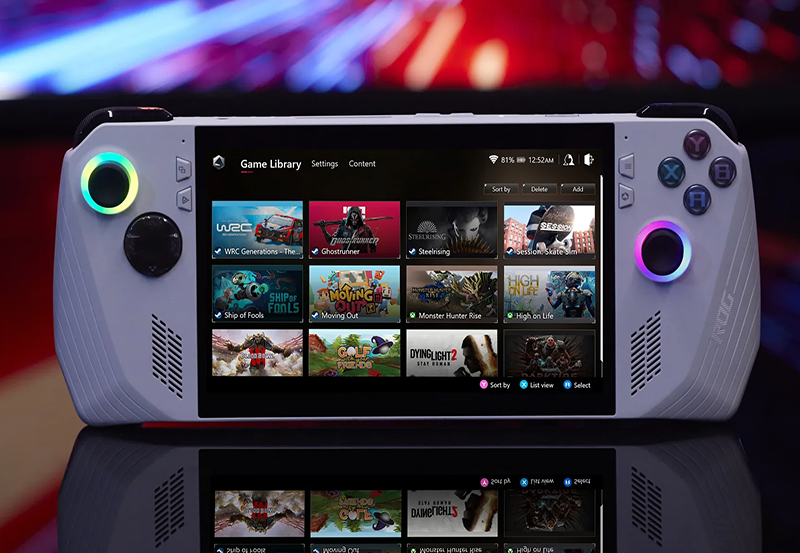The television landscape is changing rapidly, driven by technological advances and shifting consumer preferences. IPTV (Internet Protocol Television) has emerged as a key player, particularly in smart homes where connectivity and customization are king. This article explores the current state and future potential of IPTV in smart homes, looking at trends, opportunities, and the challenges that lie ahead. Whether you’re a tech enthusiast, a service provider, or just curious about what’s next for your living room setup, join us as we navigate the IPTV journey.
Understanding IPTV in the Modern Age
What is IPTV?
IPTV, or Internet Protocol Television, refers to television content that is delivered over the internet, rather than through traditional cable or satellite formats. This digital delivery method enables viewers to access a range of content in a more flexible manner. With IPTV, you can watch live broadcasts and on-demand shows using various devices that support internet connectivity, including smartphones, tablets, and smart TVs.
The Rise of IPTV in Smart Homes
As smart technology becomes a fixture in homes around the globe, IPTV is set to play a more prominent role. The integration of IPTV with smart home systems allows for greater interactivity and convenience. By leveraging voice commands or automated schedules, users can seamlessly access their favorite shows and movies. Moreover, IPTV for Android devices, in particular, is gaining traction due to its versatility and ease of use.
Pro Insight:
Stream seamlessly across devices with IPTV service in Canada, offering unmatched stability and content variety.
Key Features of IPTV in Smart Homes
Customization and Personalization
One of the standout features of IPTV is the high degree of customization it offers. Viewers can tailor their viewing experience based on preferences, creating a personalized channel lineup. With features like content recommendations and user profiles, IPTV makes television an engaging and individualized experience.
Interactive Viewing
Interactivity is at the heart of IPTV’s appeal. Unlike traditional TV, IPTV often includes features such as voting options or live-chat, which transform passive viewing into an engaging experience. Users can interact with shows in real-time, enhancing the overall viewing experience.
Seamless Integration with Devices
IPTV platforms are designed to integrate seamlessly with various smart home devices. This integration extends beyond just TV sets; it includes smartphones, tablets, and even smart home assistants. With IPTV, you can start a show on one device and continue on another without missing a beat, revolutionizing your IPTV adventure.
The Technological Landscape of IPTV
What Makes IPTV Different?
The difference between IPTV and other delivery formats lies in its ability to utilize IP-based networks to stream content. This technology allows for multicast streaming, a more efficient way of content transmission that supports higher quality and more reliable streams. By bypassing traditional satellite or cable infrastructure, IPTV can offer a broader range of content at competitive prices.
Global IPTV Services
Global IPTV services are expanding, with providers offering diverse programming from countries all around the world. This access to international content not only broadens horizons but also caters to multicultural audiences seeking programming in multiple languages. Moreover, advancements in streaming technology ensure minimal buffering and high-definition viewing, regardless of your location.
The Market Potential of IPTV
Market Trends and Predictions
The IPTV market is poised for significant growth. With increasing internet penetration and the rise of high-speed broadband services, more homes are equipped to support IPTV. Analysts predict that, as internet speeds improve, and data costs decrease, IPTV will become a dominant form of television delivery, potentially outpacing traditional broadcasting methods.
Opportunities for Service Providers
For service providers, the IPTV landscape offers numerous opportunities for innovation and growth. Bundled services that combine television, internet, and smart home capabilities can appeal to consumers looking for convenience and value. Additionally, offering exclusive content or localized programming can help IPTV providers differentiate themselves in the competitive market.
Challenges Facing IPTV
Technical Challenges
While IPTV offers many advantages, it is not without technical challenges. Issues such as network congestion, latency, and high data usage can impact the viewing experience. Providers must ensure robust infrastructure and invest in advanced technology to mitigate these concerns and deliver high-quality services consistently.
Regulatory and Legal Issues
IPTV regulation varies widely around the world. Navigating the legal landscape can be complex, particularly for new providers. Issues such as content licensing, regional restrictions, and net neutrality are critical areas that require careful attention. Keeping abreast of changes in legislation is essential for compliance and to avoid potential legal disputes.
Consumer Perspectives
What Viewers Want
Today’s viewers demand flexibility and control over their content consumption. They want to watch what they want, when they want, without being tied to a fixed schedule. IPTV addresses these desires head-on, offering a breadth of content accessible at any time. Furthermore, viewers seek intuitive interfaces that make navigating vast libraries of content effortless.
User Experiences and Reviews
Online reviews and user experiences have become important in shaping opinions and driving adoption of IPTV services. Satisfied customers often cite the variety and convenience of IPTV, while criticisms typically center around technical issues such as buffering or incomplete libraries. As such, providers must focus on these areas to improve user satisfaction and foster positive recommendations.
Future Directions for IPTV in Smart Homes
Emerging Technologies
Emerging technologies such as 5G and artificial intelligence (AI) are set to further transform the IPTV landscape. 5G promises faster, more reliable internet connections, enabling ultra-high-definition streaming without interruptions. AI, meanwhile, can enhance smart home integration, offering predictive content recommendations and user-specific optimizations that refine the viewing experience further.
Innovative Content and Platforms
The evolution of content will also drive future developments in IPTV. New formats, such as virtual reality (VR) television and interactive series, are likely to gain traction, offering immersive experiences not possible with traditional TV. IPTV platforms that innovate in these areas position themselves at the cutting-edge of entertainment technology.
Steering the IPTV Ship: What Lies Ahead?
As we look to the future of television in smart homes, IPTV clearly stands out as a transformative force. Whether through enhanced interactivity, diverse content offerings, or technical innovations, IPTV is reshaping how we consume entertainment. While challenges persist, the opportunities for growth and improvement are vast. As technology continues to evolve, the capabilities of IPTV systems will likely expand, pushing the boundaries of what is possible in smart entertainment environments. The sailing won’t always be smooth, but the journey promises to be exciting for everyone involved.
FAQ Section: Navigating the IPTV Waters

What is the advantage of using IPTV over traditional cable?
IPTV offers more flexibility, allowing viewers to choose when and what they watch on various devices. It often provides higher quality and more varied content than traditional broadcasters.
Can I use IPTV on multiple devices?
Yes, IPTV can be accessed on multiple devices, including smart TVs, smartphones, tablets, and PCs. Many services also allow for simultaneous streams on different devices.
Is IPTV legal to use?
IPTV itself is legal; however, the legality depends on the content source. Legitimate IPTV services operate with proper licenses, while some free or unauthorized sources may distribute content illegally.
How does IPTV work in a smart home setup?
In a smart home setup, IPTV integrates with your home network and devices, allowing voice control and streamlined access across different screens and assistants, enhancing the entertainment experience.
Are there data usage concerns with IPTV?
IPTV can consume significant data, especially with high-definition streams. Ensure you have a suitable data plan to avoid overage charges, and consider ISPs that offer unlimited data with IPTV services.
What should I consider when choosing an IPTV provider?
When choosing an IPTV provider, consider channel availability, content library, customer support, device compatibility, and user reviews to ensure the service fits your preferences and needs.
Is it possible to integrate IPTV with voice assistants?
Yes, many IPTV services offer integration with voice assistants like Alexa or Google Assistant, allowing you to control your viewing experience via voice commands effortlessly.
Fix IPTV Buffering and Ensure a Smooth Viewing Experience





